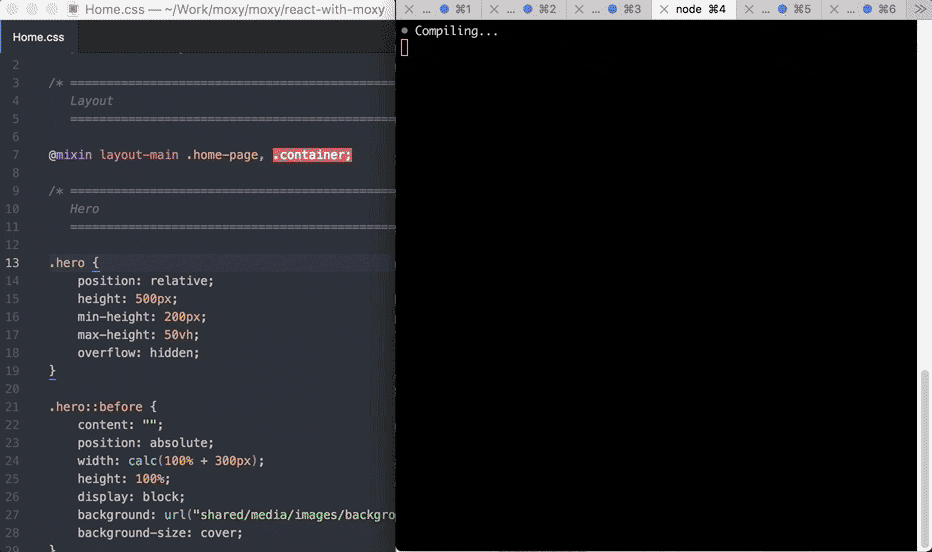webpack-isomorphic-dev-middleware
The webpack-dev-middleware, but for isomorphic applications.

Installation
$ npm install webpack-isomorphic-dev-middleware --save-dev
The current version works with webpack v2, v3 and v4.
You might get a peer dependency warning when using webpack v2 or v3 but you may ignore it.
Motivation
Building applications powered by webpack with server-side rendering (isomorphic/universal apps) is hard.
When making a production build, you must compile both the client and server. When developing, we want to rebuild the client & server and bring in the new compiled code without restarting/reloading the application. This is complex, especially setting up the development server.
To make your development workflow easier to setup, webpack-isomorphic-dev-middleware offers an express middleware that:
- Looks for code changes in both the client and the server and automatically compiles them
- Optimizes compilation by using in-memory filesystem
- Delays responses until the aggregated compiler finishes
- Adds
isomorphicto res.locals, which includes the webpack stats and the methods exported in your server file - Offers beautiful compilation reporting into your terminal
- Receive status through OS notifications
- Shows compilation errors in the browser on refresh, similar to the ones you get on the terminal
Usage
const express = ;const webpack = ;const webpackIsomorphicDevMiddleware = ;const webpackHotMiddleware = ; const clientCompiler = ;const serverCompiler = ;const app = ; // Serve any static files from the public folderapp;// Add the middleware that will wait for both client and server compilations to be readyapp;// You may also add webpack-hot-middleware to provide hot module replacement to the clientapp; // Catch all route to attempt to render our isomorphic appapp;The middleware function is flexible and supports various signatures:
- Two separate webpack compilers
const clientCompiler = ;const serverCompiler = ; app;- A webpack multi-compiler where the first and second indexes belong to the client and server respectively, see https://webpack.js.org/api/node
const compiler = ; app;- A webpack-isomorphic-compiler that simplifies compiling isomorphic apps
const isomorphicCompiler = ; app;Available options:
| Name | Description | Type | Default |
|---|---|---|---|
| memoryFs | Either disable or enable in-memory filesystem (disabling decreases performance) | boolean | true |
| watchOptions | Options to pass to webpack's watch | object | |
| watchDelay | Delay calling webpack's watch for the given milliseconds | number | 0 |
| report | Enables reporting | boolean/object | { stats: 'once' } |
| notify | Report build status through OS notifications | boolean/object | false |
| headers | Headers to be sent when serving compiled files | object | { 'Cache-Control': 'max-age=0, must-revalidate' } |
| findServerAssetName | Finds the server asset to require from the Webpack stats | function | first js asset from the first entrypoint |
By default, findServerAsset selects the first JavaScript asset from first entrypoint. If that doesn't suit your Webpack configuration, you may change it:
// Finds the asset with the `server` word in its name statsassets ;Tests
$ npm test
$ npm test -- --watch during development





